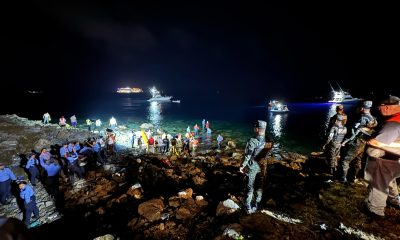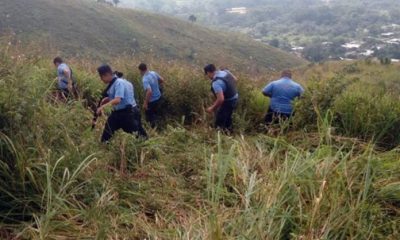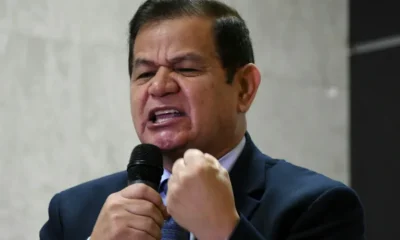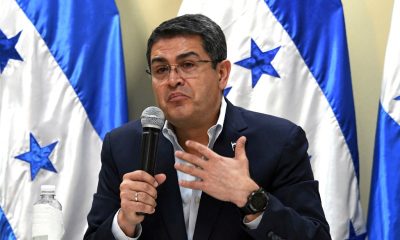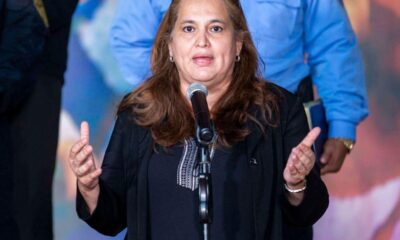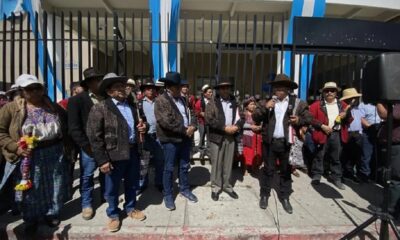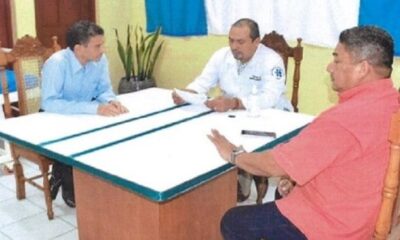Central America
Honduran Congress fails to reach agreement to elect Superior Court

November 24 |
The Permanent Commission of the Honduran Congress, which is composed of nine deputies of the ruling Libre party, including the head of the Legislative, Luis Redondo, appointed Wednesday a special commission to be in charge of the selection process of the judges of the Superior Court of Accounts (TSC).
Meanwhile, in a parallel session, the opposition benches agreed to create another commission to take charge of this selection. The constitutional period of work of the current officials of the TSC expires next December 7.
During this session of the opposition benches, deputy Iroshka Elvir (Partido Salvador de Honduras, PSH) served again as acting president, while Suyapa Figueroa (PSH) and Marlon Lara (Partido Liberal) served as secretaries. Days before, these deputies were denounced for usurpation of functions and abuse of authority.
What happened deepened the division within the Legislative, where out of 128 seats at least 65 correspond to opposition benches which insist on not dialoguing with the ruling party on core aspects of the legislative agenda, in this case the election of a group of authorities, which must be done in periods of time foreseen in the Constitution.
The member of the permanent commission, congresswoman and secretary of the Congress Luz Angélica Smith (Partido Libertad y Refundación, Libre, ruling party) announced that between November 27 and December 4, the Secretariat will be receiving nominations to integrate the TSC.
The special commission created by the Permanent Commission will conduct interviews with the candidates, examine their resumes, evaluate them and then must present a list for election.
The opposition rejected the election of the commission carried out by the Permanent Commission and reiterated its narrative that such body is trying to substitute the Plenary.
Due to the intransigence of the opposition benches, the Permanent Commission relied on the Constitution to appoint, weeks ago, authorities such as the Attorney General and the Deputy Attorney General.
Central America
Washington Imposes Visa Ban on La Modelo Director Amid Crackdown in Nicaragua

The United States government announced Wednesday that it has imposed visa restrictions on Roberto Clemente Guevara Gómez, director of Nicaragua’s largest prison, La Modelo, for his involvement in actions that violate human rights.
In a statement, U.S. Secretary of State Marco Rubio said the measure is intended to promote accountability for abuses committed under what he described as the “Murillo-Ortega dictatorship” against political prisoners.
Rubio specified that Guevara Gómez was designated for participating in “a gross violation of the human rights of a political prisoner.” The sanction was issued under the 2024 Department of State, Foreign Operations, and Related Programs Appropriations Act, which bars the sanctioned individual — and potentially immediate family members — from entering the United States.
“United States demands the immediate and unconditional release of all political prisoners unjustly detained in Nicaragua,” the statement added.
Ongoing tensions between Washington and Managua
Washington rejected Nicaragua’s November 2021 elections, in which President Daniel Ortega and his wife, now co-president Rosario Murillo, were reelected while seven potential challengers were in prison.
Relations between the two countries remain tense amid expanding U.S. sanctions and increasing diplomatic pressure on the Nicaraguan government.
On January 10, marking Ortega’s 19 years in power, Nicaragua released “dozens of detainees,” including political prisoners. The move came one day after the U.S. Embassy in Managua stated that “more than 60 people” remain “unjustly detained or disappeared” in the Central American nation.
U.S. officials have continued to push for the “unconditional release” of political prisoners rather than selective or temporary releases.
Ortega, 80, governs alongside Murillo with consolidated authority, having strengthened executive power through constitutional reforms and security measures, while the opposition has been weakened by imprisonment, exile, and the revocation of citizenship and property rights.
Central America
Guatemala’s Attorney General Consuelo Porras Loses Bid for Constitutional Court Seat

Guatemala’s attorney general, Consuelo Porras, who has been sanctioned by the United States over corruption allegations, lost a key vote on Monday in which a public university selected two of the 10 magistrates for the country’s highest constitutional court. However, she could still seek a seat through another nominating body.
The election of five full magistrates and five alternates to the Corte de Constitucionalidad (CC) is taking place gradually over more than two months and is considered crucial in the ongoing struggle for control of Guatemala’s judiciary, which critics say has long been influenced by a political and economic elite accused of corruption.
According to results announced at a press conference, the governing council of the Universidad de San Carlos de Guatemala (USAC) rejected Porras, who had applied as either a full or alternate magistrate, and instead chose two candidates aligned with the university rector. The vote was held at a hotel in Antigua, about 35 kilometers from the capital.
Despite the setback, Porras — whose term as attorney general ends on May 16 — could still be nominated to the Constitutional Court by the Corte Suprema de Justicia, which appoints two magistrates. The remaining six are selected by the president, the bar association and Congress.
“It’s always a possibility,” the 72-year-old lawyer said days earlier when asked by reporters whether she would seek nomination through another institution if she lost the USAC vote.
Porras has been sanctioned by Washington and the European Union for allegedly attempting two years ago to block the inauguration of President Bernardo Arévalo and for pursuing legal actions against anti-corruption prosecutors, judges, journalists and social leaders since taking office in 2018.
The USAC vote was controversial because most members of the university’s governing council are serving beyond the expiration of their terms. Students, academics and social activists staged protests against Porras’ candidacy.
Central America
Teens visit ETESAL substation to learn about responsible energy use

Within the framework of World Energy Day, teenagers from the institutional care center Ciudad Niñez y Adolescencia (CNA), run by the Consejo Nacional de la Primera Infancia, Niñez y Adolescencia (Conapina), took part in an educational visit to a substation operated by Empresa Transmisora de El Salvador (ETESAL) in Santa Ana.
The aim of the activity was to give participants first-hand knowledge of how the country’s electricity transmission system works and to highlight the importance of responsible energy use.
During the tour, the group learned about the process that delivers electricity to homes, businesses, and industries. They were also introduced to specialized technical equipment and the safety measures required to ensure an efficient and reliable service.
Before the guided visit, the teenagers attended two informative talks and an environmental awareness session focused on the relevance of responsible energy consumption and its impact on the environment.
According to Nelson Menjívar, head of Conapina’s programs unit, the initiative serves a dual purpose. “It has two objectives: a recreational component and an educational one, so that adolescents can learn about the work carried out by ETESAL and how some of the resources they use at home are generated. This is in keeping with the guarantees established under the Crecer Juntos law; we ensure those rights for children,” he said.
Menjívar stressed that these activities help young people better understand how essential services function in their daily lives while promoting efficient consumption habits and a culture of environmental respect and care.
The event is part of the principle of shared responsibility set out in the Crecer Juntos law, promoted by the administration of Nayib Bukele, which states that families, society, private companies, and the State must work together to safeguard the comprehensive well-being of children and adolescents.
-
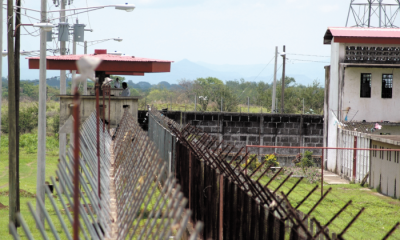
 Central America4 days ago
Central America4 days agoWashington Imposes Visa Ban on La Modelo Director Amid Crackdown in Nicaragua
-
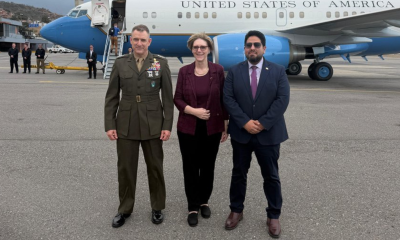
 International3 days ago
International3 days agoTop U.S. Military Commander Meets Interim Venezuelan Leaders After Maduro’s Capture
-
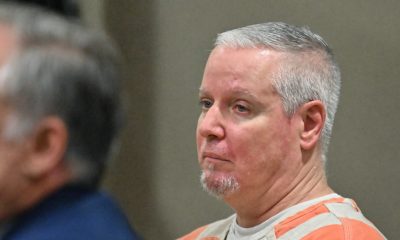
 International5 days ago
International5 days agoFather Faces Murder Charges in Georgia School Shooting Case
-
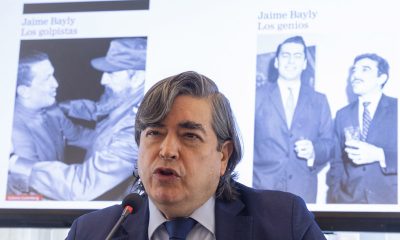
 International4 days ago
International4 days agoBayly Says Trump ‘Gets Along Better With Dictators’ and Criticizes U.S.–Venezuela Policy
-

 International4 days ago
International4 days agoRubio Engages in Quiet Discussions With Castro Family as U.S. Pressures Havana
-
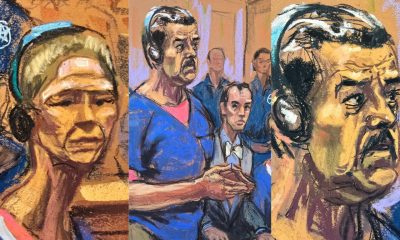
 International4 days ago
International4 days agoMaduro and Cilia Flores Receive Consular Visit in U.S. Jail Ahead of March 26 Hearing
-

 International2 days ago
International2 days agoThree Injured in Mail Package Explosion at Buenos Aires Gendarmerie Academy
-

 International2 days ago
International2 days agoU.S. Targets Members of Outgoing Boric Administration With Visa Revocations
-

 International22 hours ago
International22 hours agoTrump Defies Supreme Court With New 10% Global Tariff
-
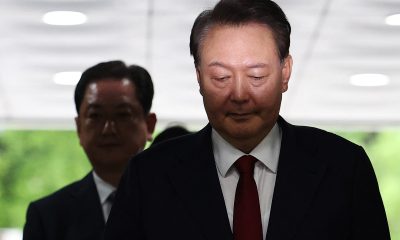
 Sin categoría3 days ago
Sin categoría3 days agoFormer South Korean President Yoon Suk-yeol Sentenced to Life for Insurrection
-

 International5 days ago
International5 days agoSpanish Government Targets ‘Big Tech Impunity’ in AI Image Scandal



























